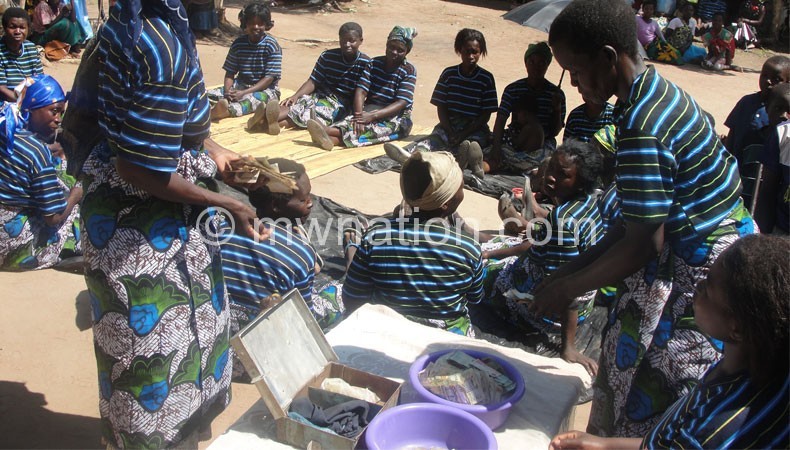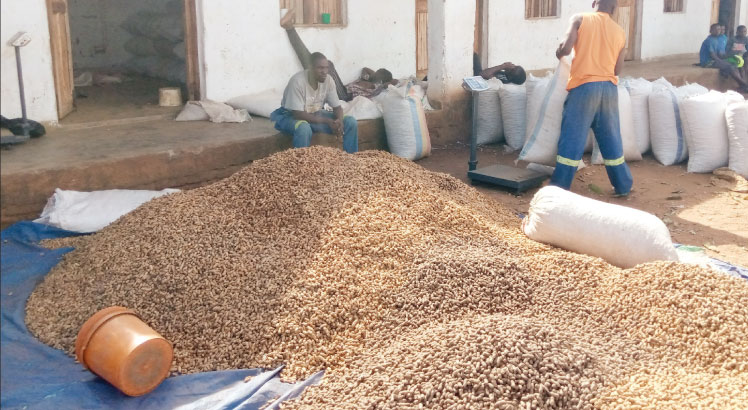The good, the bad and the ugly of VSLS
Thirty-year-old Stella Tchale, a resident of Ndirande Township in Blantyre, will live to remember the fruits of belonging to a Village Savings and Loans (VSLs) group. She is a member of Tikondane VSLs group which comprises 15 women, and has every reason to smile because, through the grouping, she provides for her household’s needs.
“I have a secondary school child whom I support from the business of selling samoosa which is financed by the money which I earn and save in the village bank. I also have three other children whom I support. I also complement my husband in buying basic needs for the household,” boast Tchale.
She says with a weekly saving of K2 000, she said she is planning to expand her business to earn more that is currently the case.
The genesis
The journey towards financial independence for Tchale has not been all that rosy. Tikondane is not the first VSL group she has been a member of. Earlier, she was a member of another VSLs group in Ndirande, which disbanded after one of the members vanished with their annual savings, leaving the remaining group members scratching their heads.
“We saved for a year and our savings had accumulated to about K 900 000. Our calculations meant that a member with the highest savings would have pocketed K80 000 while the least around K30 000,” she narrates.
One person’s greed shattered all the members’ dreams. “Most of us had planned to boost our businesses with what we had saved. It was a major setback, but having seen the benefits of a VSLs group, I with other women, formed Tikondane.”
Tchale’s story is just but one example of stories of VSLs groups that have gone through a similar experience.
Group Village Head Mataka of Traditional Authority (T/A) Mpama in Chiradzulu has also gone through the experience as that of Tchale.
He says issues of security of money accumulated in village banks are increasingly becoming a growing concern.
Explains Mataka: “Time and again, I hear cases where a member, usually the treasurer of a village bank, vanishing with the money.
“Village banks are providing households with basic needs and other necessities. Many people have transformed their lives through village banks.
“It is just unfortunate that a few greedy people want to reap where they did not sow and tarnish the overall image and benefit that these groupings bring.”
Formalising VSLs
Having noted a rise in cases of members going missing with savings, the Reserve Bank of Malawi (RBM), which is the registrar of financial institutions, is mulling over bringing VSLs into the formal market.
RBM spokesperson Mbane Ngwira says the move is aimed at protecting those that keep and transact their money with village banks. He says because village banks deal with money, complaints that arise in these entities end up at their doorstep.
An economist in the Ministry of Finance, Economic Planning and Development responsible for VSLs and microfinance, Peter Mwale, says it is vital for government to have information on VSLs.
He says: “VSLs are an important aspect in financial inclusion. They have helped poor communities to start and expand businesses, but also increase investments in food security, nutrition and livestock and other assets.
“However, without government knowledge on the affairs and performance of VSLs, they will continue to face challenges; hence, the need for organisations that oversee VSLs and VSLs themselves to come forward with clear data for us to know how best we can come in to assist if need be.”
Malawi Union of Savings and Credit Cooperatives (Muscco), an umbrella body for savings and credit cooperatives (Saccos), last year took some VSLs on board, linking them with Saccos and equipped them with skills on money management, budgeting, credit management, provision of security and other money related matters.
Muscco chief executive officer Sylvester Kadzola says the move is aimed at providing an alternative savings avenue to VSLs members before they think of how to spend their money.
The insurance industry has also not been left behind in their quest to embrace VSLs.
Nico General Insurance Company Limited early this year said it is planning to start providing insurance services to VLSs as one way of mitigating risks in the groups.
Nico General Insurance Company chief operating officer Donbell Mandala says they are in the initial stages where they have already partnered with Nico Life Insurance Company Limited, which is going to implement the exercise when it rolls out.
“Village savings and loans are becoming more active that is why we need to take an initiative to have them insured,” he says.
It is not only monetary and fiscal authorities and insurance companies that want VSLs to be formalised. Other industry experts hold the same views.
“I personally feel it’s welcome a development for VSLs to be recognised by government. It is a fact that these groups have significantly contributed to positive change among rural people.
“They need support and encouragement. However, any regulation may require thorough research and consultation if it is to work for the benefit of community,” says a financial industry analyst.
He says it is crucial that money for VSLs members is secured.
“There are indeed some groups which have lost their funds through theft. However, these thefts represent an insignificant number.
“My experience is that out of 100 groups, it could one experiencing theft and most of them are organised within the membership. The amounts stolen are not too huge although at village level they mean a lot,” he says.

VSLs versus commercial banks
The financial industry analyst says while others claim that interest rates charged by these VSLs groups, at between 15 percent and 20 percent, are softer as compared to commercial bank, this is not the case.
“A 15 percent interest rate in VSLs groups, it is higher than the 47 percent interest rate charged by commercial banks. The reason is that VSLs charge their interest rate per month while banks charge per year. Therefore, a 15 percent interest rate for the groups is almost over 150 percent per year.
“Nonetheless, VSLs members do not find this to be a problem as compared to getting a loan from a commercial bank. The rationale is that when you save with a bank, you get six percent interest at the end while you are required to pay an interest of over 40 percent if you borrowed from the same bank.
“This means that distribution of dividends is quite unfair and inequitable. The difference is that in the VSLs group, all the interest earned is shared equitably among the members, a biggest difference in terms of cost benefits analysis,” he explains.
Banker urges caution
But one Blantyre-based banker observed that bringing VSLs into the formal market should be done with caution, arguing that the informal sector is an integral part of the financial sector.
He argues: “Since VSLs are part of financial sector, they ought to be recognised in the estimation of statistics of financial inclusion.
“VSLs should by nature be treated as self-regulatory organisations. Informal and illegal are two different things, and as far as VSLs groups are concerned, they are not illegal since they are by consent.
“RBM and other relevant authorities should perhaps just provide advice to an umbrella body of VSLs groups based on their inclusive financial sector research—where inclusive financial sector should include the informal sector.”
He said pricing of VSLs group is way above the commercial banks’ lending rates since rates for VSLs of around 20 percent, apply for a shorter period while bank rates are calculated on annual basis.
“This should send a signal that bank interest rates are not necessarily prohibitive to rural households. The growth of VSLs demonstrates that pricing is not the problem,” he said.
Figures indicate that Malawi has over 600 000 VSLs members who have accumulated savings of over K3 billion in 67 groups, according to figures from Community Partnership for Investment Programme (Comsip). The number seems to be growing every day. n





